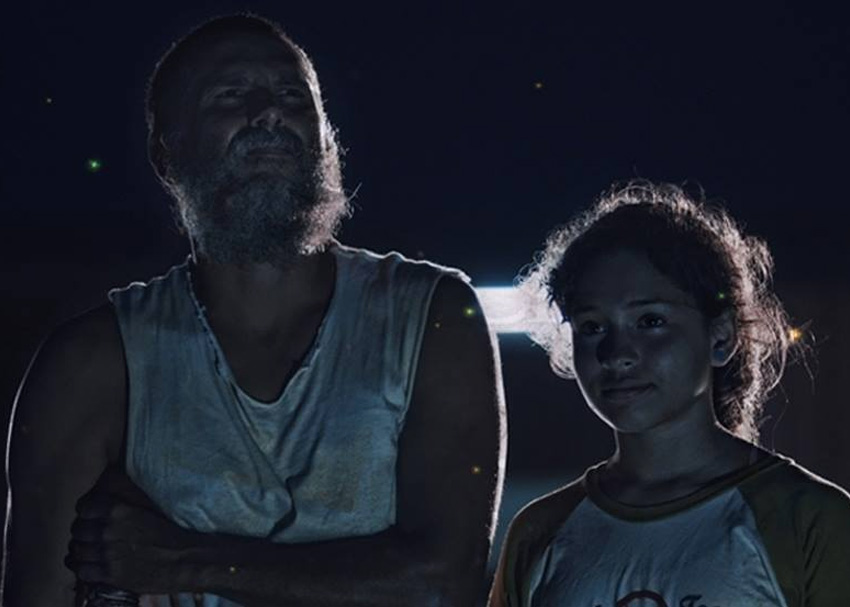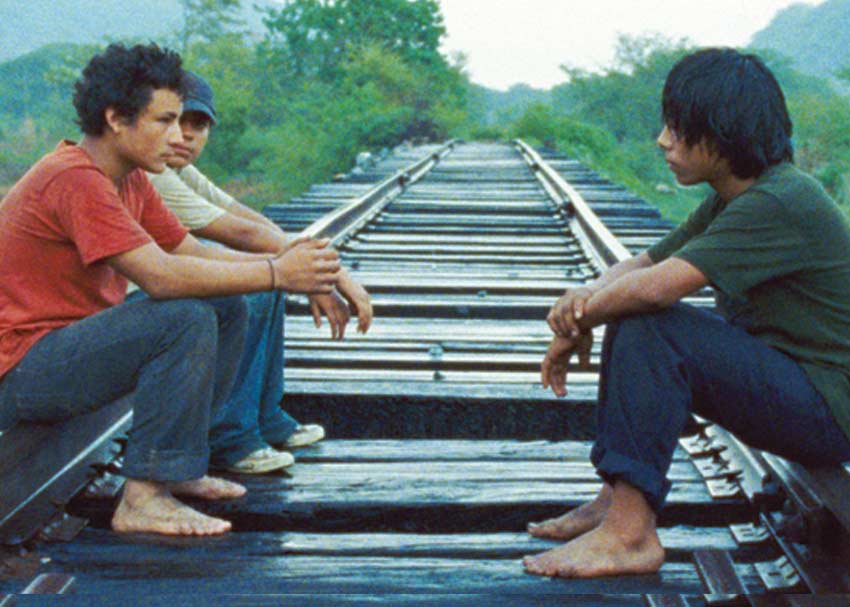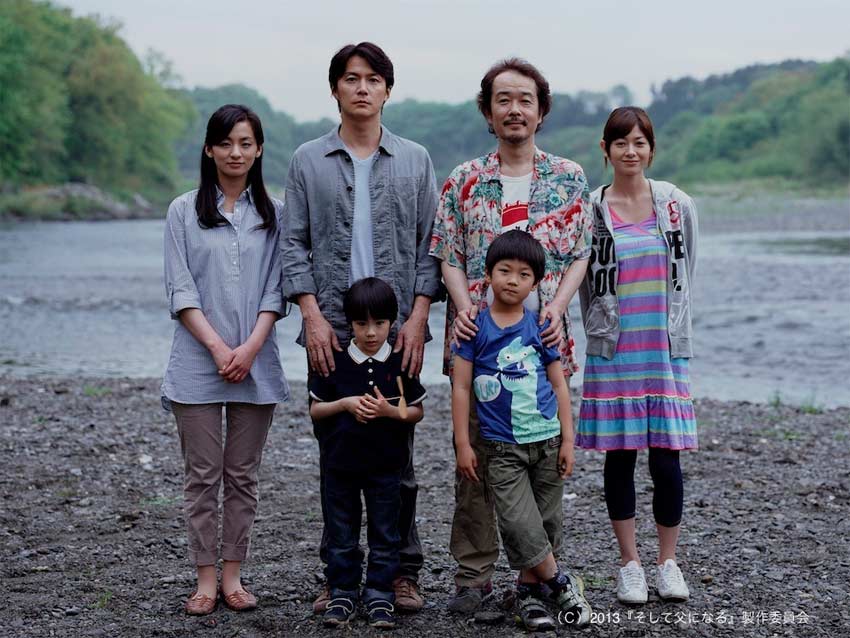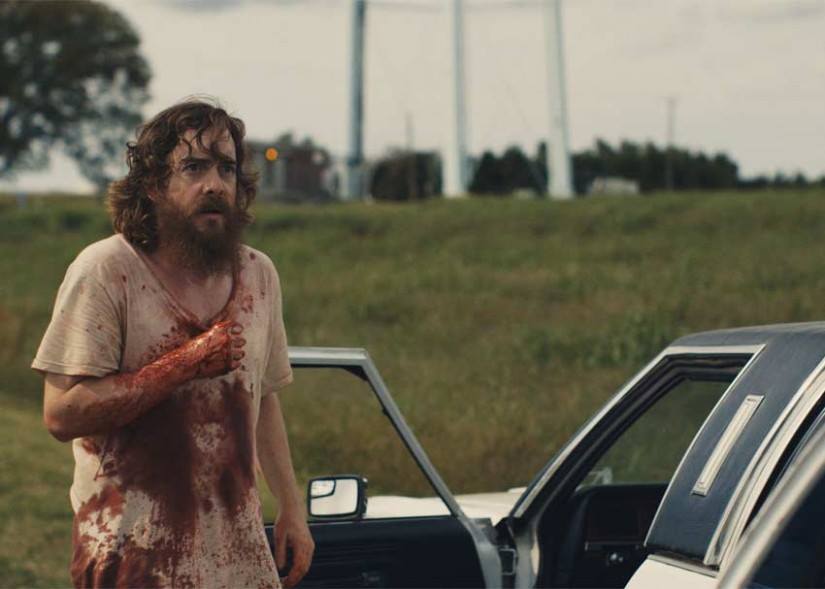[CIFF Capsule Review] Heli
[Ruby Hornet will be attending the 49th Chicago International Film Festival from 10/10 - 10/24. Be sure to follow along as we bring you coverage from the longest-running competitive international film festival in the country. You can find all of our coverage from this year's CIFF here.]
Heli
Director: Amat Escalante
Country: Mexico
CIFF Screenings: October 19, 2013 (9:30pm), October 20, 2103 (8:30pm)
[youtube id="tUY5kZmgxpc"]
Most of us are aware of the violence and prominence of the drug cartels in Mexico. In Heli, the unfortunate reality of the situation is fictionalized in an oftentimes brutal 95 minutes of screentime. The titular Heli is a 17-year-old factory worker living within meager means with his wife, their baby, his 12-year-old sister, Estela, and their father. When Estela's 17-year-old boyfriend, an army cadet, proposes to Estela, he stashes a secret cache of cocaine at her house. Unfortunately, it triggers a pandora's box effect that exposes the corrupt nature of the Mexican officials being just as dangerous as the violent nature of the cartel members themselves.
Heli came with a warning of its excessive scenes of violence. While the few gruesome scenes weren't highlighted and stylized in the way Hollywood films do, they're no less shocking in how shocking they are. Rather, the violence is somewhat muted and nonchalant. By not making a spectacle of the violence, director Amat Escalante creates an even more devastating look at the reality that has held Mexico hostage as normal, everyday occurrences... which are unfortunately what they are.
Heli is a depressing film with no room for optimism. In saying that, it's also one of the best films I've seen this year. It might be a bit niche and catered towards film festival goers, foreign film aficionados, and those with interests in Mexico's politics, which is more than fine. If you don't fall under these aforementioned groups, I'd still suggest seeing Heli not only to get a better understanding of how violent Mexico is right now, but how different foreign filmmakers frame their films compared to the predictable drudge Hollywood has a tendency to crank out.
Score: ![]()
![]()
![]()
![]()
![]()
![]()
![]()
![]()
![]() 8.5 out of 10
8.5 out of 10
[CIFF Capsule Review] Chasing Fireflies
[Ruby Hornet will be attending the 49th Chicago International Film Festival from 10/10 - 10/24. Be sure to follow along as we bring you coverage from the longest-running competitive international film festival in the country. You can find all of our coverage from this year's CIFF here.]
Chasing Fireflies
Director: Roberto Flores Prieto
Country: Colombia
CIFF Screenings: October 18, 2013 (5:30pm), October 19, 2013 (11:45am)
[youtube id="Z3PRRupllyw" mode="normal" align="center"]
Manrique lives a solitary life watching over an abandoned salt mine in Colombia. His only forms of social contact are with a stray dog and a co-worker who insists on telling mediocre jokes before giving Manrique daily security codes. His routine is broken up by the appearance of a young daughter he didn't know about. Her cheery, optimistic nature soon begins to rub off on Manrique as he slowly begins to lighten up and connect with Valeria.
Chasing Fireflies was shot beautifully against the natural backdrop of Colombia. The most pivotal scene of film is perhaps where the film found its title where Manrique and Valeria are surrounded by fireflies during a late night bonfire; it's in this scene where the cinematography is at its best. The film's theme of family and love is never too sentimental or cheesy, which films of this nature can sometimes end up becoming. As has been common in most other films screening at this year's CIFF, Chasing Fireflies has many moments of quiet ambience, playing into Manrique's self-isolation, but also letting the relationship between he and Valeria grow naturally without the need for incessant dialogue to push the connection along.
Score: ![]()
![]()
![]()
![]()
![]()
![]()
![]() 7 out of 10
7 out of 10
[RH Review] Kill Your Darlings
I saw the best minds of my generation destroyed by madness...
The Beat Generation brought forth the first counterculture literary movement in America when Allen Ginbserg, William S. Burroughs, and Jack Kerouac made waves with their new take on literature and writing. While Ginsberg went on to become a celebrated poet, Burroughs a champion for alternative writing methods, and Kerouac as the angel of desolation for every single teenager and young 20-something that picked up On the Road, one key figure that shied away from the spotlight was Lucien Carr.
It was Carr who introduced Ginsberg, Burroughs, and Kerouac to one another; it was Carr who was the glue that held everybody together through many nights of manic hysteria; it was Carr who even suggested flipping the literary social norms. Yet, it was also Carr who threatened to ruin the lives of those around him before their spectacular lives even had a chance to truly begin. Kill Your Darlings tells that story.
[youtube id="aEr8Ogdm-3I" mode="normal" align="center"]
Kill Your Darlings
Director: John Krokidas
Rating: R
Release Date: October 16, 2013
Early in his educational career at Columbia University, Allen Ginsberg (Daniel Radcliffe) befriends the enigmatic Lucien Carr (Dane DeHaan), an upperclassman with a captivating aura and a penchant for rebellion. As Carr introduces Ginsberg to a lifestyle he never before witnessed, he draws the ire of David Kammerer (Michael C. Hall), a former teacher obsessed with Carr. Together, Carr and Ginsberg share a new vision for literature, propelled by the help of Carr's other friend (and old friend of Kammerer's), William S. Burroughs (Ben Foster), and fellow Columbia student, Jack Kerouac (Jack Huston). However, the overbearing presence of Kammerer begins to create tension amongst the group as Ginsberg's attraction to Carr grows. It isn't long before the dark secret Carr holds begins to slowly pervade the group, coming to a head one fateful night that'll change the lives of everybody involved forever.
I'll be blunt: There have been a handful of films detailing the Beat Generation released over the past three years (On the Road and Howl), yet Kill Your Darlings is leaps and bounds better than the other films. Anybody worried about Radcliffe's career can rest assured that he will be able to overcome any lingering doubts post-Harry Potter. His portrayal of Ginsberg is played with nuance and subtlety - you can see the longing in his eyes, hear the devotion and desperation in his words (including a great American accent, to boot!), and feel the discomfort through his body language.
Radcliffe's performance is equally matched by DeHaan. Whereas Radcliffe plays Ginsberg with subtlety, DeHaan's Carr is the complete opposite, full of flamboyancy and charisma. Whether it's his naturally icy gaze or the aura of commandment he's exuding, DeHaan's take on Lucien Carr is one of the best performances I've seen all year. Every scene he's in, eyes naturally gravitate to him and ears perk towards his words. In these instances, the audience becomes Radcliffe's Ginsberg. Chemistry plays a huge role in films, and the chemistry between Radcliffe and DeHaan is sublime. You long for DeHaan/Carr through Radcliffe's/Ginsberg's longing.
While playing a minor role, Ben Foster is just as likely to steal a scene as DeHaan and Ginsberg are likely to pull audiences in towards them. His robotic monotone is almost an exact mirror of Burroughs' vocal delivery; I suggest comparing clips of Burroughs speaking to Foster's lines in Kill Your Darlings, and you might not catch who is who. I feel that Foster has been unfortunately overlooked over his career, but hope that Kill Your Darlings attracts the right people to give him the due he deserves.
However, one complaint is Jack Kerouac's depiction in the film. This may be my complete and total bias towards Kerouac, but his characterization in Kill Your Darlings painted him not as the introspective voice of the Beat Generation, but as a bumbling oaf (with a New York accent) who just happened to write. The accent could be because of Huston's natural British accent seeping over his American accent, but the characterization could be due to the script or direction. After all, in a film full of literary visionaries, the line had to be drawn somewhere, right?
Despite my complaint of Kerouac's characterization, first-time director John Krokidas made a remarkable debut. His confidence in his vision and actors' performances help make Kill Your Darlings so enthralling. You don't have to know Kerouac's sad poetry, Ginsberg's honesty, Burroughs' unfortunate descent into drugs to enjoy Kill Your Darlings, and when that interest can be made without previous knowledge/awareness of characters in biopics, you know you've exceeded many expectations.
The names of both the actors and the people they portray may be what attract you to Kill Your Darlings, but it'll be the film's direction, performances, and story that will keep you talking about it.
Score: ![]()
![]()
![]()
![]()
![]()
![]()
![]()
![]()
![]() 8.5 out of 10
8.5 out of 10
[CIFF Capsule Review] La Jaula de Oro
[Ruby Hornet will be attending the 49th Chicago International Film Festival from 10/10 - 10/24. Be sure to follow along as we bring you coverage from the longest-running competitive international film festival in the country. You can find all of our coverage from this year's CIFF here.]
La Jaula de Oro
Director: Diego Quemada-Diez
Country: Mexico
CIFF Screenings: October 16, 2013 (8:00pm), October 17, 2013 (6:00pm), October 22, 2013 (1:15pm)
[youtube id="GBBNmC2JWGU" mode="normal" align="center"]
To some, the United States represents hope for a prosperous future. The path some have to take to achieve that future can be dangerous and oftentimes illegal; however, the risks far exceed the alternative. In director Diego Quemada-Diez' La Jaula de Oro, three Guatemalen teenagers embark on their own journey to to fulfill the promises "the North" has to offer. After befriending a Tzotzil Indian along the way, they run into various problems that threaten to deter their journey. La Jaula de Oro portrays the hardships facing immigrants on their paths for a better life.
La Jaula de Oro doesn't try to politicize the plot or tell a feel-good story about illegal immigration. Instead, Quemada-Diez depicts the harsh realities facing those attempting to enter the US. The ending is bittersweet, but real... unfortunate as it is. The purpose of foreign films and foreign film festivals like the Chicago International Film Festival is to show a piece of life that aren't normally seen by American movie audiences. There have been amazing immigration films in the past (Sin Nombre being one of the better films of the past few years) that have been glamorized and stylized. La Jaula de Oro runs counter to that with a gritty depiction of this journey, both aesthetically and narratively that doesn't add a layer of Hollywood sheen to undercut the film's message.
Score: ![]()
![]()
![]()
![]()
![]()
![]()
![]() 7 out of 10
7 out of 10
[CIFF Capsule Review] Like Father, Like Son
[Ruby Hornet will be attending the 49th Chicago International Film Festival from 10/10 - 10/24. Be sure to follow along as we bring you coverage from the longest-running competitive international film festival in the country. You can find all of our coverage from this year's CIFF here.]
Like Father, Like Son
Director: Hirokazu Kore-eda
Country: Japan
CIFF Screenings: October 16, 2013 (6:00pm), October 19, 2013 (7:00pm)
[youtube id="joR0F6Z9fDc" mode="normal" align="center"]
How would you react when you found out the life you were living was a lie, that the child you have loved and nurtured for six years turns out to not be your biological son at all? In Hirokazu Kore-eda's Like Father, Like Son, the Nonomiya family discovers that their son, Keita, is not actually their son at all. When presented with this shocking news, they meet with another family in a similar situation. As is common with films of this nature, the Ryota Nonomiya is a strict, hardworking man raising Keita to be just as hardworking; however, their biological son, Ryusei, is a bit more "wild" and reared by the laidback, but loving Sakai family. The two families attempt to work through their situation by integrating the families with one another, but at what cost to the children?
Family plays an important role in Japanese culture, and films like Like Father, Like Son analyze just how important bloodlines are, even in modern society. Kore-eda opens up the "Nature vs. Nurture" debate with the film, but in a way that engages its audiences. Like Father, Like Son is heartbreaking at its most emotional points, funny at its most lighthearted, and entertaining and captivating throughout. There are so many ways the film could have failed, but the right tone, flow, and plot helped make Like Father, Like Son one of the best films of this year's Chicago International Film Festival.
Score: ![]()
![]()
![]()
![]()
![]()
![]()
![]()
![]() 8 out of 10
8 out of 10
[CIFF Capsule Review] Hide Your Smiling Faces
[Ruby Hornet will be attending the 49th Chicago International Film Festival from 10/10 - 10/24. Be sure to follow along as we bring you coverage from the longest-running competitive international film festival in the country. You can find all of our coverage from this year's CIFF here.]
Hide Your Smiling Faces
Director: Daniel Patrick Carbone
Country: United States
CIFF Screenings: October 14, 2013 (6:15pm), October 16, 2013 (6:30pm), October 22, 2013 (1:30pm)
Hide Your Smiling Faces takes place in a rural, densely-forested town where kids play in the woods and swim in lakes. While light on plot, the film nudges its main protagonists, brothers Tommy and Eric, along following the death of their young friend. Other reviews have compared writer/director Daniel Patrick Carbone's style as Terrence Malick-esque, and I have to agree to a point. Not much happens in terms of plot in Hide Your Smiling Faces, per se; rather, the film is more interested in examining the effects of the child's death on Tommy and Eric.
In any other film, this would result in plodding along with time achingly slowing down to a halt. In Hide Your Smiling Faces, however, it's poetic and inquisitive. The amazing cinematography helps accentuate the atmospheric nature of the film. Heh, funny I mention nature, as both the nature of life and death and Nature as the physical setting of the film are Hide Your Smiling Faces' two biggest themes.
As I continued writing this capsule review, I began to realize exactly how Malick-esque this film really is. Take the best parts of Tree of Life, dust off any lingering scenes of confusion, frame it in a coming-of-age drama, and you'll Hide Your Smiling Faces. If you can only see a select few films at this year's Chicago International Film Festival, make sure you see Hide Your Smiling Faces.
Score: ![]()
![]()
![]()
![]()
![]()
![]()
![]()
![]() 8 out of 10
8 out of 10
[CIFF Capsule Review] Lasting
[Ruby Hornet will be attending the 49th Chicago International Film Festival from 10/10 - 10/24. Be sure to follow along as we bring you coverage from the longest-running competitive international film festival in the country. You can find all of our coverage from this year's CIFF here.]
Lasting (Nieulotne)
Director: Jacek Borcuch
Countries: Poland and Spain
CIFF Screenings: October 14, 2013 (5:45pm), October 15, 2013 (3:00pm)
http://youtu.be/0aYn5hCp7po
Summer love rarely lasts, yet it's usually because of circumstances outside of the couple's hands. Yet, for those days, weeks, months, those shared moments feel like they're everlasting. In Jacek Borcuch's Lasting, Michal and Karina fall in love while on holiday in Spain. However, a life-changing encounter Michal has with an overzealous landowner changes the trajectory of the relationship. In a film in which Michael's harboring of a secret presents the main source of conflict, it's Karina's own secret that further balance's Lasting's theme of secrecy.
Lasting was awarded the Cinematography Award for a World Cinema Drama at this year's Sundance Film Festival, and it shows with its soft hues accentuated by long, contemplative silences. The contrast between the heavenly, dreamscape-like landscape of Spain with the muted, dreary sights of Poland further drive the connection between cinematography and narrative.
Score: ![]()
![]()
![]()
![]()
![]()
![]() 6 out of 10
6 out of 10
[CIFF Capsule Review] Blue Ruin
[Ruby Hornet will be attending the 49th Chicago International Film Festival from 10/10 - 10/24. Be sure to follow along as we bring you coverage from the longest-running competitive international film festival in the country. You can find all of our coverage from this year's CIFF here.]
Blue Ruin
Director: Jeremy Saulnier
Country: United States
CIFF Screening: October 13, 2013 (8:15pm)
[youtube id="uIwzTUzmXto"]
20 years after the double murder of his parents, Dwight returns to his hometown when the convicted murderer is let free. After he takes vengeance into his own hands, the tables are turned on him as the now-deceased murderer's family begins a manhunt to avenge their relative's death. Blue Ruin is a psuedo-noir film rife with violence, bloodshed, and a great example of a revenge thriller.
Blue Ruin is dark, both visually, thematically, and humorously. Scenes where harsh shadows envelop Dwight invading an empty house are contrasted with funny dialogue exchanges between himself and those around him, whether they're with his hunters or his high school best friend. Dark comedy can be a mixed bag if used incorrectly or exaggerated, but Blue Ruin balances it well. Not many films can laugh at a witty response, jump when somebody's face is blown off, then laugh again when it comes to disposing the body.
Revenge thrillers are usually about the fulfillment of revenge and the journey the character takes to accomplish it. Blue Ruin, however, takes it to the next level with moments of character introspection balancing the weight of blood. In just his second feature length film, writer/director Jeremy Saulnier showed how much potential he can bring to the film world; it's only a matter of time before the film world takes notice.
Score: ![]()
![]()
![]()
![]()
![]()
![]()
![]() 7 out of 10
7 out of 10










